INCREASED WOMEN IN PARLIAMENT THROUGH 35% AFFIRMATIVE ACTION NOT IN THE NINTH NATIONAL ASSEMBLY AGENDA BY LADY NKIRU CELINE OKORO
Former Deputy Senate Leader, Dr. Jonathan Silas Zwingina yesterday in Abuja identified public perception and imaging, security, review of the items on the exclusive legislative list and consolidation of democracy as the major tasks and agenda for the ninth National Assembly. In his 15 page keynote address, not a mention was made on the need to increase the number of women in parliament through the enactment of 35% affirmative action clause into the 1999 federal constitution as espoused in the extant 2006 National gender policy and its 2007 implementation framework, in line with the principles of Beijing Platform for Action (BPFA), Goals five and ten of the sustainable Development Goals (SDGs) as well as the convention on the elimination of all forms of violence and discrimination against women (CEDAW) to which Nigeria is signatory to.
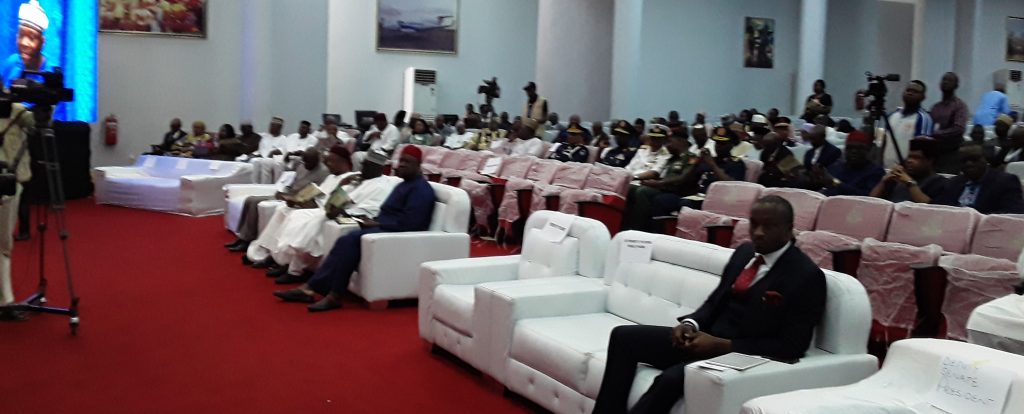
Setting legislative agenda for the ninth National Assembly.
Dr. Zwingina was the guest speaker at the 2nd Public Lecture of the National Assembly Legislative Digest Themed, “20 Years of the National Assembly in the 4th Republic, the Tasks ahead of the Ninth National Assembly” held at Nigerian Airforce Conference center (NAF) Jahi Abuja. Said he, “despite the misgivings in some quarters, Nigeria has undoubtedly arrived at the consolidation stage of its democratic practice … with the believe by most of her citizens, that the democratic regime is the most right and appropriate …better than any other realistic alternative they can imagine”.
He noted that, “Consolidation of democracy in Nigeria does not however imply the absence of threats to it, but the threats thus far are marginal and containable”. Twenty years of sustained democratic experimentation in the fourth republic is indeed a milestone when compared to five years in the first Republic (1960 to 1966), Four Years in the Second Republic (1979 to 1983) and three years in the deformed third Republic (1991 to 1994).
Dr. Zwingina noted that in days of military interventions and interregnum issues like Boko Haram insurgency, declaration of Sharia Laws in some states in Northern Nigeria, Long absence of the Leadership elite from the polity for Medical Tourism, the lacuna that led to the Doctrine of Necessity and rampant Herders/ farmers conflict across several states in the federation were enough to have sparked or generated military interventions before now.
Lending his voice and opinion to the restructuring debate, the former deputy senate leader stated in unequivocal terms that, “… The 2014 national conference does not amount to national consensus because participants were mostly appointees of the President who may not have taken into account the views and interests of other Nigerians. Such a conference cannot also replace the National Assembly as the true representative of the Nigerian people”. In restructuring, whatever Nigerians desire to restructure must first be accepted by 2/3 of National Assembly, 2/3 of the State’s Houses of Assembly and a Presidential assent”. To achieve substantial restructuring, a budget time frame of 10 -50 years should be allocated for maximum results”.
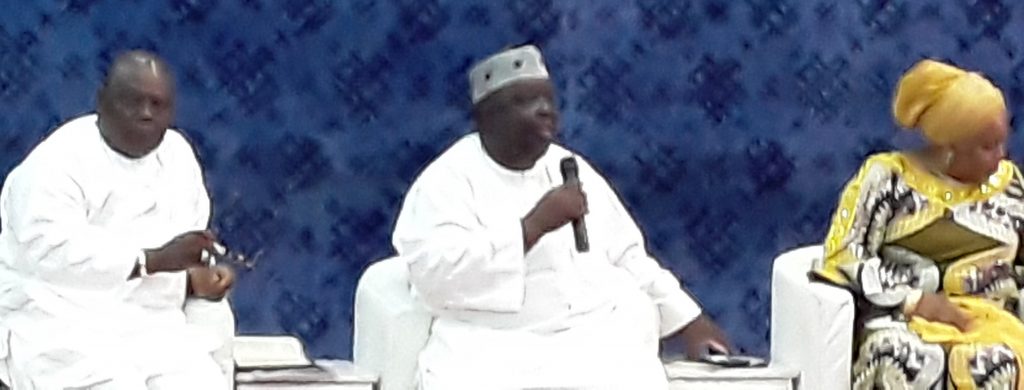
Discussants on the ninth Assembly agenda.
On the agenda for the ninth National Assembly according to Dr. Zwingina, the image and perception of the National Assembly remains key as it is its major albatross, suffering from deliberate distortions, executive misrepresentation, media manipulations, ignorance, internal sabotage and counterproductive grandstanding. “A situation where a distinguished Senator or member of the House of Representative desiring popularity by announcing his monthly income to include his running costs and allowances is more dangerous than 20 hostile newspapers put together, for in truth, the running costs of a Senator like the Minister or heads of Departments and Agencies (MDAs) cannot be said to be their personal income. Besides, it is a known fact, that National Assembly has no power to fix their personal incomes as that is the responsibility of the Revenue Mobilization, Allocation and Fiscal Commission.
Dr. Zwingina noted that it is far more injurious for the Senator who makes such false claims to be ignored by his colleagues without a rebuke, reprimand, disclaimer, public correction and apology. Such damage to the institutional image and memory of the Assembly can go very far indeed.
To this end, Dr. Zwingina recommended complete and total overhaul of all media outfits attached to the National Assembly, robust budget for the media committees as well as journalists who cover national Assembly, and education of journalists such that they are thoroughly acquainted with the rights, privileges and duties of the National Assembly members at all times to redeem the image of the National Assembly.
Next to public imaging are the daunting security concerns across the country. To address headlong the persisting insecurity across the states of the federation, Dr Zwingina recommended a Martial plan for the recruitment into the Nigerian Police a 500,000 member police force at the federal level, and 1.5million police force at the state and community level. He reasoned that massive employment into the state police formations will provide employment and take away idle criminals from the streets thereby reducing insecurity. Said he, “ We should not appear to over state the matter of security for in truth Nigeria is under policed with only 400,000 policemen for a population of over 200million with more than half serving as bank security and escorts to large political elite”.
The third agenda for the ninth Assembly was identified as the items currently in the exclusive legislative list including the Land use Act, Mines and Mineral, Police and other security services, Taxation of incomes, Power and electricity, Creation of Local Government, Labour matters, National Parks, Federal Roads, and repeal of State electoral commissions and the empowerment of INEC to conduct local government elections. In the spirit of the continued call for devolution of powers to the states and federating units, major tasks for the ninth Assembly should be unbundling the exclusive legislative list.
The ninth Assembly must also consolidate our democracy as a key agenda. In consolidating Nigeria’s democracy, loop holes found in the electoral act should be further tightened to guide the conduct of our political processes. Inconclusive elections as experienced in Osun, Adamawa, Bauchi, Kano, Sokoto during the 2018/2019 general elections should be dispensed with by the ninth Assembly. When elections are cancelled, they ought to remain cancelled and the uncancelled results should produce a winner in our elections. Dr. Zwingina called for electoral voting by borrowing best practice from India with 650 million people, and establishment of performance indicators. Said he, “We must show that our democracy can produce results that impact lives of the citizens. We can look at Rwanda and learn from them or take Malaysian example to see what can be learnt from there as a means of consolidating our democracy.”
Since gender is not part of this agenda, the women’s movement in Nigeria must intensify their advocacy, constructive engagements, networking and sensitization of members of the ninth assembly to include gender and affirmative action as a major legislative agenda for the ninth assembly.
Dignitaries at the event included, Former Senate Presidents of the fourth Senate, Senator Anyim Pius Anyim, GCON, who was the Chairman of the event, Senator Ken Nnamani GCON, and hosts, Mohammed Ataba Sani – Omolori, Clerk of the National Assembly. The Speaker, Federal House of Representatives, Rt. Honourable Femi Gbajabiamila was represented by Honourable Benjamin O Kalu Chairman House Committee on Media and Publicity.
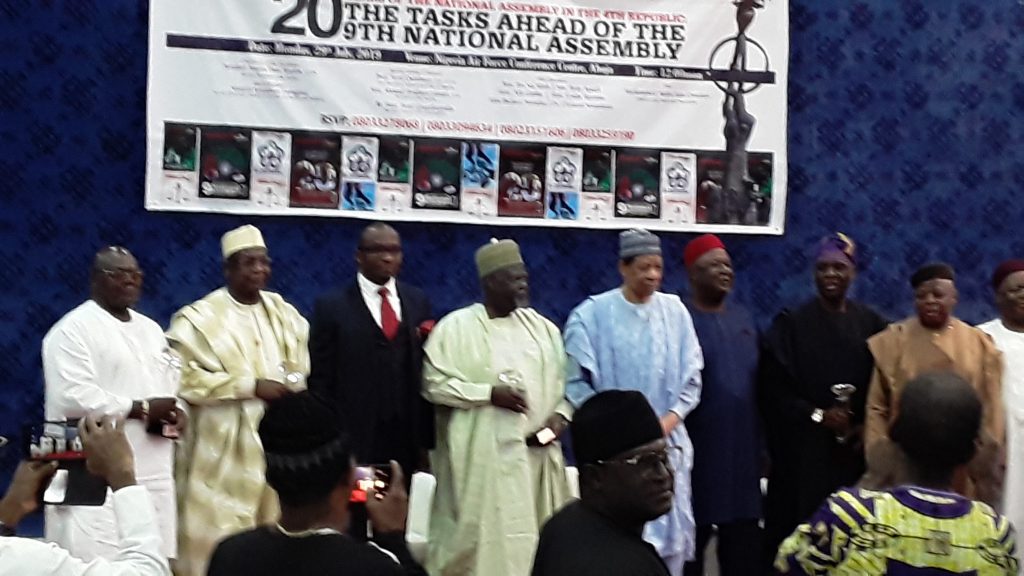
It’s a men’s affair (1960 to date)
The highlight of the event was the presentation of recognition and performance awards to former principle officers and clerks of the National Assembly. The recipients included Dr. Joseph Wayas GCON, President of the Senate 1979 to 1983, Dr Ken Nnamani, 2005 to 2007, Dr. Mohammed Adamu Fika OFR, Clerk to the National Assembly 1990 to 1994. Others are Alhaji Ibrahim Salim, CON, 1994 to 2005, Alhaji Nasiru Ibrahim Arab 2005 to 2010, Prince Asiwaju Oluyemi Ogunyomi 2010 and Dr. Salisu Abubarkar Maikasuwa 2010 to 2016.
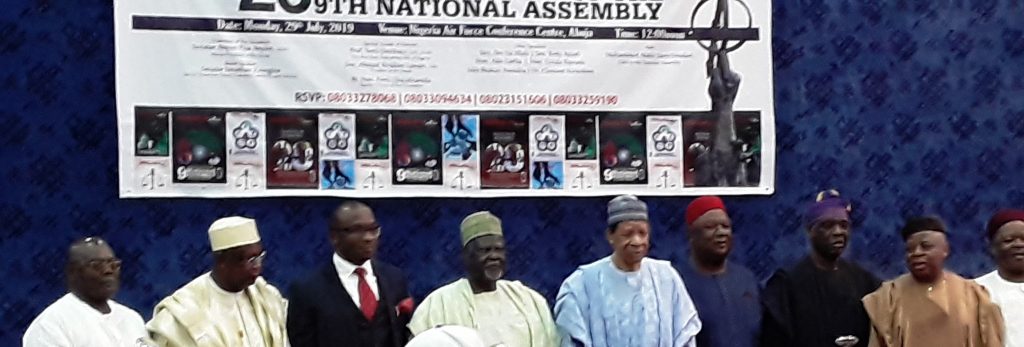
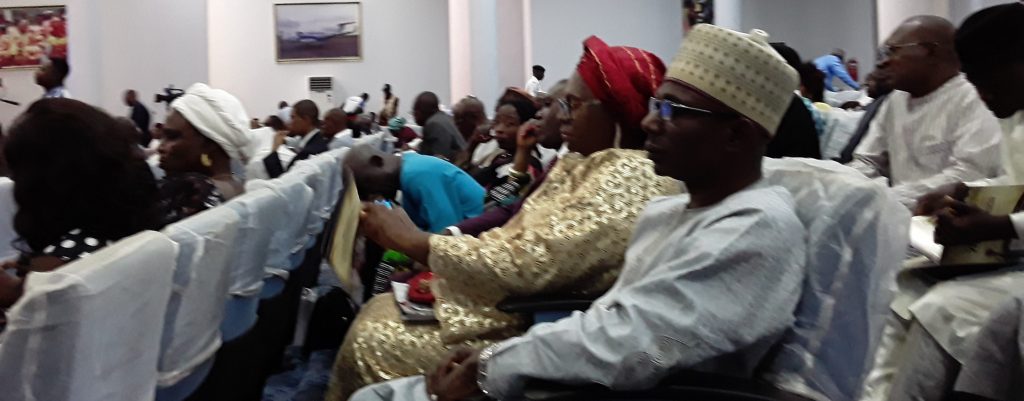
The End ###
